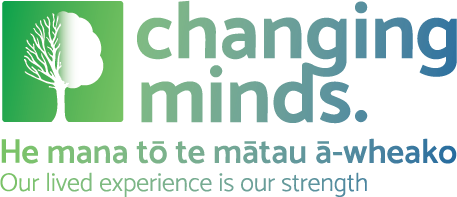Te Reo Māori Translation of our COVID-19 FAQ
Last Updated - 23 February 2022
E nga mana, e nga reo, e nga rau rangatira ma tena koe tena koutou katoa.
Nga mihi kia koe mo to korero pai ki roto e tenei pukapuka
Whaimana kia koe, ki to oranga pai. Mo te whanau hoki.
Nga mihi, Changing Minds.
The mana and the language of great chiefs I greet you all
Greetings to you and may the words in this book
Bring mana to you and to your wellbeing. And your family.
Sincerely, Changing Minds.
The decision around getting vaccinated or getting a booster vaccine weighs heavily on some Tāngata Mātau ā-wheako at the moment.
If you are seeking information specifically for those with Lived Experience of mental distress and/or addiction, or you’re having kōrero with whānau or loved ones about the vaccine and feel like more info could help, we invite you to look at our FAQ for Tāngata Mātau ā-wheako which is now available in English and Te Reo Māori.
This has been translated at an accessible and easy-to-read level to support our community in any kōrero they are having on this topic.
We encourage you to share this with your networks or anyone who is supporting whānau or loved ones who are hesitant to get vaccinated. Over the past year Changing Minds has been listening to our community of Tāngata Mātau ā-wheako as well as people working in mental health and addiction services about our specific needs and concerns when it comes to the COVID-19 vaccinations. Our goal is to ensure we have trustworthy and reliable information about the vaccines that is accessible and tailored to our communities.
We are thankful for the Ministry of Health funding and mahi and support of our Board Member Jason Haitana in bringing this translation to life.
If you feel you need extra support for your wellbeing we encourage you to visit the resources we support, and our new Whakatau Mai Digital Library for on-demand wellbeing resources.

